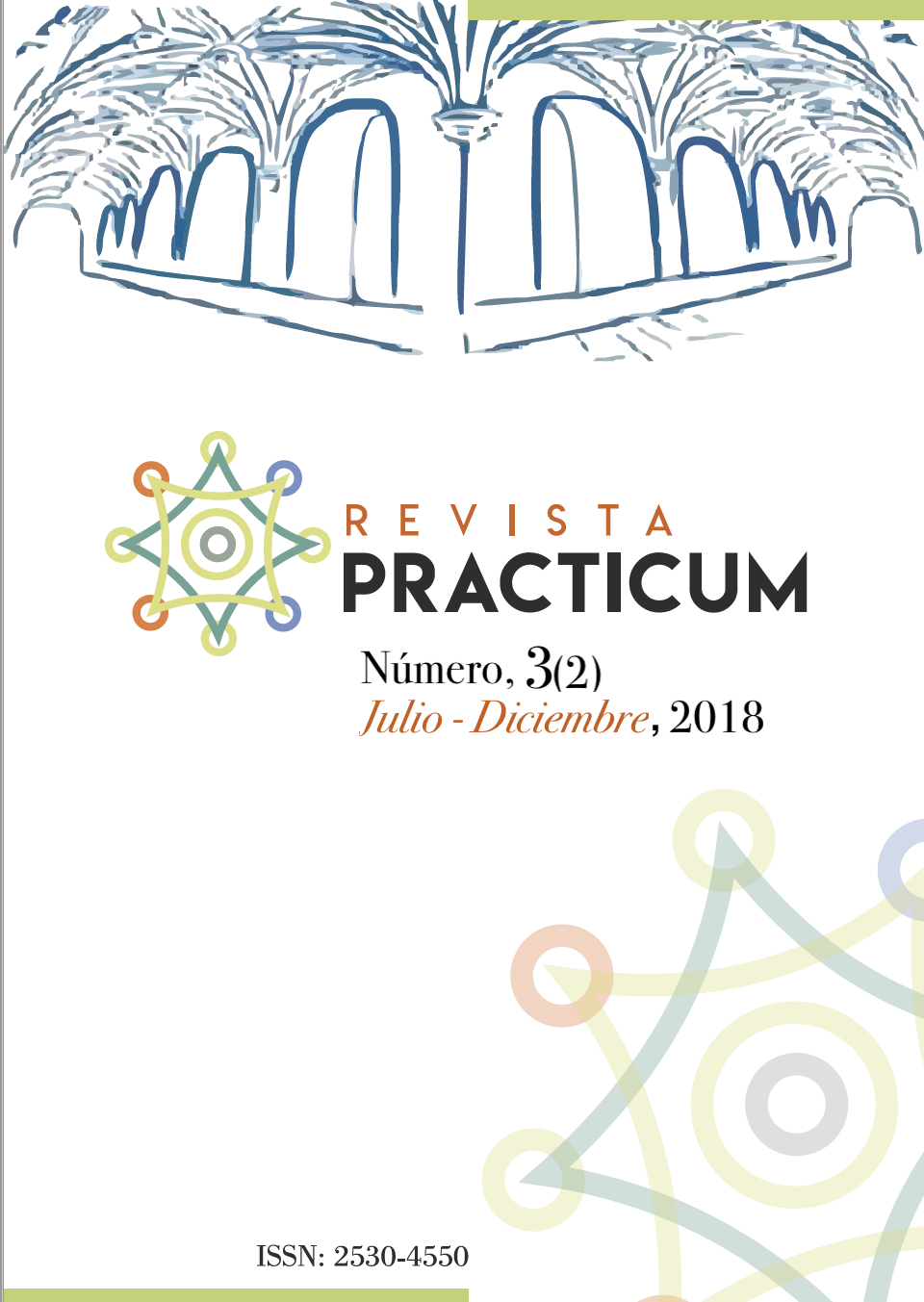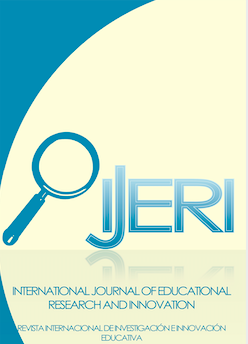Perception of the professional, academic and social performance of the investigative Pedagogical Practice: an experience of the Catholic University of Manizales-UCM
DOI:
https://doi.org/10.24310/RevPracticumrep.v3i2.9864Keywords:
External degree programs;, competencies;, assessment;, educational research;, pedagogical practice;Abstract
This research discloses the perceptions of professional, academic and social performance; was carried out on a group of 27 directors of the training centers who evaluated 27 students through an institutional instrument made up of 20 indicators distributed according to the professional, academic and social component, which was subjected to statistical analysis and validation as minimum requirements for construct validation and reliability according to Cronbach's alpha. The practical development of the methodology allowed knowing the professional component, the homogeneity in the results of each of the indicators were evaluated in the practice scenarios where the Degree in Technology and Information Technology was present during this year 2016. It is interesting to highlight the general average of 4.8, which shows the probable potential of professionals in the technology and computer science degree to guide workshops, prepare handbooks, manuals, articles, participate and support projects related to the know-how of professionals, implement advertising campaigns, develop software, etc.
Downloads
Metrics
References
Del Valle y Vega, (1995). La capacitación docente, ¿una práctica sin evaluación?Buenos Aires: Magisterio Río de la Plata
Díaz Barriga Arceo, F. (2002). Aportaciones de las perspectivas constructivista y reflexiva en la formación docente en el bachillerato.Perfiles educativos,24(97-98), 6-25.
Diker, (1997). La formación de maestros y profesores: hoja de ruta.Buenos Aires: Paidós
Freire, P. (1998). La educación como práctica de la libertad. México: Siglo XXI Editores.
Freire, P. (2004). Pedagogía de la autonomía. Sao Paulo: Paz y tierra. Fierro, C. (1999). Transformando la Práctica Docente. Una Propuesta Basada en la Investigación Acción. México: Paidós.
Huberman, S.(1999). Cómo se forman los capacitadores. Arte y saberes de su profesión. Barcelona Editorial Paidós.
Perrenoud, P. (2007).Pedagogía diferenciada de las intenciones a la acción. Editorial Popular.
Resolución 5443 (2010), por la cual se definen las características específicas de los programas de formación profesional en educación, en el marco de las condiciones de calidad, y se dictan otras disposiciones, Ministerio de Educación Nacional. Recuperado de:https://goo.gl/BhFx2p
Romero D, A. (1997). La IAE Formación de docentes en investigación como práctica pedagógica. Doc. Mimeografiado.
Universidad Católica de Manizales (2003). Proyecto Educativo Universitario PEU. Manizales: UCM.
Universidad Católica de Manizales (2010). Reglamento de Prácticas Académicas.
Universidad Católica de Manizales (2011). Sistema Institucional de Proyección Social.Manizales: UCM.
Universidad Católica de Manizales. (2011a). Reglamento de Prácticas de Pregrado. Manizales: UCM.
Universidad Católica de Manizales. (2011b). Sistema Institucional de Proyección Social. Manizales: UCM.
Universidad Católica de Manizales (2016). Buenas Práctica de Responsabilidad Social. Manizales: UCM.
Zabala, A. (2000). La práctica educativa. Cómo enseñar. España: Grao.
Downloads
Published
How to Cite
Issue
Section
License
Acceptance of the work implies that the author grants Revista Prácticum the exclusive rights to reproduce, distribute and sell his or her work worldwide, both in digital and paper formats, CD-ROM, etc.
Likewise, the authors shall grant Revista Prácticum the rights of dissemination, public communication on the Internet and IT networks, data buses, as well as any other portals or electronic devices for online consultation of its contents and extracts, under the conditions of the portal, repositories or databases where the work is stored.
Revista Prácticum allows authors to publish and disseminate their articles and works on their personal websites, research teams, institutional repositories and scientific databases. All this in accordance with the Creative Commons 4.0 License









8.png)








